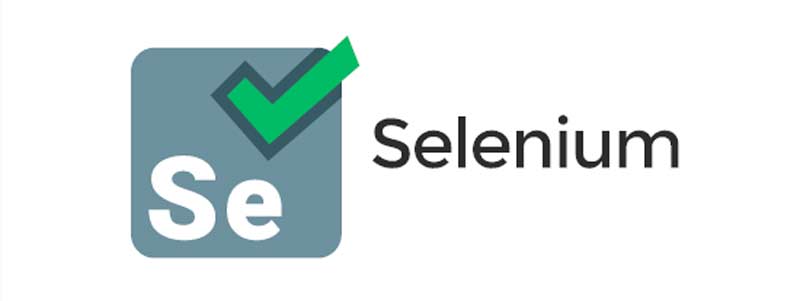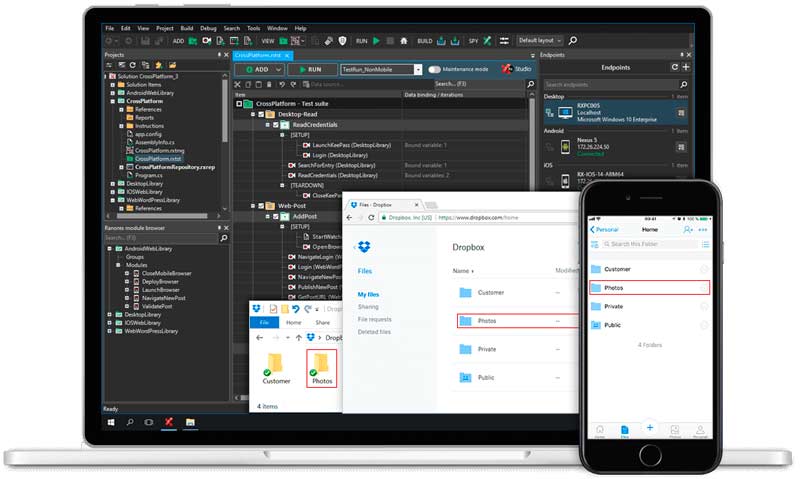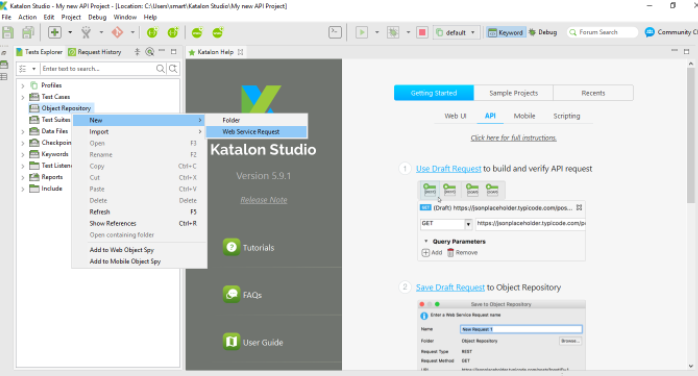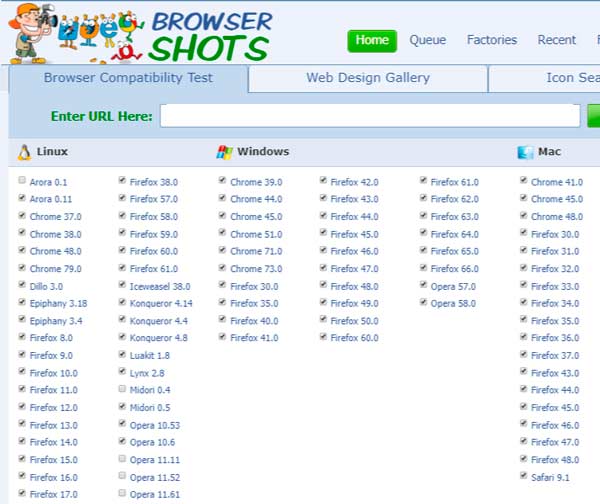16 Best Automation Testing Tools for Web Applications in 2023
Testing should always go hand in hand with website development It not only makes your code smooth and eliminates bugs but helps you achieve your business goals. In this article, we review the best website testing tools in 2023 that you can use to test your web software before and after the release
Types of web testing strategies
Your website consists of an architecture, a set of technologies, UI/UX design, and security practices. You need to check all these things to ensure your website or web app is working properly. There are lots of solutions for checking any given aspect of your website. Generally speaking, you can test these aspects:
- Functionality – check if all the website’s functions work properly and tests for correct responses from the backend. Functionality testing can be performed both manually and automatically.
- Usability – is usually checked manually. It helps to determine whether your web software is intuitive.
- Interface – check website’s layout: a QA specialist makes sure all the elements of the interface are in place and working correctly.
- Database – validate the data stored in a database and testing of database performance for actions like deleting, adding, and altering data.
- Compatibility – see whether a website works equally well on all popular web browsers.
- Performance – check the speed and load time on different browsers in different countries. It’s usually done automatically.
- Security – requires a complex set of strategies that include penetration, vulnerability, and risk assessment testing.
When it comes to the quality assurance process, there are three general approaches:
- Manual
- Automated
- Mixed
In this article, we’ll focus on automated best web application testing tools.
Functional and interface testing tools
1. Selenium

Selenium is the most popular automated testing tool for websites and web applications. It’s one of the most flexible web test tools for regression and functional testing. Here’s the list of OSs, browsers, and languages it supports:
Operating systems:
- Windows
- Mac
- Linux
Browsers:
- Firefox
- Chrome
- Internet Explorer
- Headless browsers
Programming languages:
- C#
- Python
- Ruby
- PHP
- Perl
- JavaScript
Selenium isn’t just a single tool. Rather, it’s a set of components:
- Selenium IDE (Integrated Development Environment)
- Selenium RC (Remote Control)
- Selenium WebDriver
- Selenium Grid
These four components have their approaches to testing, so choose the one that best corresponds to your goals. With Selenium WebDriver, you can write more complex automation scripts. Note that in order to use Selenium, you need to be a skilled programmer who knows how to build automated scripts.
This is a disadvantage because not all quality assurance engineers and developers have the necessary knowledge.
Pricing: Free, open source
2. Unified Functional Testing (UFT)

UFT is the second most popular commercial tool for functional testing. With UFT, you can test APIs, web services, and GUI test applications on all kinds of platforms, including mobile.
- The best features of UFT are:
- Image recognition
- Reusable test components
- Automated documentation
In documentation produced by UFT, you can also visualize your data with the help of charts, and UFT is famous for its clear API testing interface.
UFT also integrates with continuous integration tools such as Jenkins.
Pricing: 60-day free trial, then $3.200 per year
3. Ranorex Studio

Top web application testing tools include Ranorex. It allows you to do end-to-end quality assurance on different platforms, browsers, and operating systems. Ranorex supports:
- Chrome
- Firefox
- Safari
- Microsoft Edge
And other browsers where you can do cross-browser testing.

Like UFT, Ranorex offers automated object identification that helps to track UI elements in your websites and web applications.
Unlike Selenium, Ranorex allows you to create test automation projects without needing to code. However, if you do need to write a script, you can do so with standard programming languages.
To make your testing process more convenient, Ranorex Studio integrates with:
- Jira
- Jenkins
- TestRail
- Git
- Travis CI
Pricing: free for 30 days, then $2,990 per year
4. TestRail

TestRail is test case management software that allows you to organize the testing process and connect all team members in one place. Metrics and reports in TestRail allow developers, testers, and project managers to see how well testing is going and get immediate feedback on a product.
TestRail features:
- Individual test status tracking
- Simple and informative dashboards
- Activity reports
- Milestone management
- Resource management
- Integration with Jira, Bugzilla, Axosoft, FogBugz, GitHub, Team Foundation Server, and Ranorex Studio
Pricing: Starting at $32 per month
5. Katalon Studio

It’s one of the most used automation testing tools for web apps, mobile apps, and websites. It’s based on and takes the best from the Selenium and Appium frameworks.
One of the biggest advantages of Katalon Studio is its inclusivity: you don’t have to be a programming pro to use it, but if you are, all the advanced functionality is open for you, from building your own libraries to writing automation scripts.
You can integrate Katalon Studio with:
- Continuous integration
- QTest
- Jira
- Jenkins
- Git
Katalon Analytics is a nice addition for visualizing your test reports with charts and metrics.

Katalon Studio features:
- Support for SOAP and REST for API and service testing
- Lots of built-in keywords for test cases
- Ability to expand Katalon’s functionality with plugins from the Katalon Store
- Visualized reports on Katalon TestOps
This year, Katalon released Katalon Studio 7. It features lots of improvements for scalable projects and allows for sharing tests across projects.
Pricing: Free
6. SoapUI

SoapUI has many web app testing tools inside of it for REST and SOAP API testing that thousands of companies already benefit from.
Testing with SoapUI is data-driven; you can easily upload your files and databases so SoapUI can emulate the real-world connection between your users and APIs.
SoapUI has an extensive list of capabilities and integrations: developers can work with 13 API management platforms, including REST, SOAP APIs, JMS, and IoT.
You can choose the free open-source version of SoapUI or take advantage of a few additional (and useful) features in the Pro version.
Apart from that, you can easily create tests with drag-and-drop functionality, perform asynchronous testing, and reuse scripts.
To reduce the testing time, you can use the API Explorer feature that allows you to debug API responses on the spot.
Pricing: Free for the open-source version; Pro version from $659 per year
Compatibility testing tools
7. BrowserStack

BrowserStack is a cross-browser compatibility testing tool that allows developers to test their websites on over 2,000 mobile and web browsers. It’s cloud-based, so you don’t need to install it.
BrowserStack supports the next platforms:
- Opera Mobile
- Android
- iOS
- Windows
- Mac
Not only does BrowserStack allow for testing on multiple platforms, it also supports lots of screen sizes, resolutions, and browsers so you can make sure your website looks good and works properly on any kind of device.
The primary focus of BrowserStack is security, so it also supports lots of firewalls, proxies, and active directories. This allows developers to check the security of their web apps across browsers.
If you use Selenium, you’ll find BrowserStack particularly useful, as it supports automated Selenium tests. With BrowserStack, you can perform cross-browser testing through Selenium.
Pricing: From $29 per month for the standard version after a free trial; $129 per month for the Pro version
8. Browsershots

Browsershots allows you to see exactly how your website looks on different operating systems and browsers: Internet Explorer, Firefox, Chrome, Safari, Opera, and others. It works like this:
- You submit a web address
- It gets to the queue
- Various distributed computers open your link in their browsers
- All these computers take screenshots and send them to the server
- You can view all your screenshots and see how your website behaves
The idea is simple, but Browsershots allows you to check your web design on lots of browsers with the same tool. Moreover, in Browsershots you can make your tests specific by choosing:
- Browser type
- Operating system
- Screen size
- Color depth
- JavaScript and Flash settings
Pricing: Free
9. Browserling

Browserling offers cross-browser testing in all popular browsers including Chrome, Firefox, and Safari. It supports different operating systems, just like the other tools we’ve mentioned, but what makes it unique is its support for browser extensions. If you want to see how your website will look if the user adds extensions to their browser, Browserling is your perfect tool.
Just like Browsershots, Browserling takes screenshots of your website on different devices, operating systems, and browsers, but it can do much more than that.
Browserling supports live sessions, giving access to your web product on real computers that run real browsers instead of just emulating them. To check whether your website is responsive for different screen sizes and resolutions, Browserling allows you to change the screen size as you go.
Then you can record your test sessions and make bug reports out of these videos or screenshots.
Pricing: Starting at $19 per month after a free trial
Performance testing tools
10. LoadRunner

LoadRunner one of the most popular web app testing tools that will throw your software into a simulated Black Friday when thousands of users are trying to reach your website. It measures your system’s behavior while sending loads of concurrent user requests to your servers.
During this flood of requests, LoadRunner gathers information about how your web app handles the load and outputs it in the form of informative metrics and charts. You can see exactly where your system might fall short, as LoadRunner analyzes all system components separately. For example, it can distinguish between web and database servers.
You can integrate LoadRunner into your existing development tools including:
- IDE
- jUnit
- Selenium
- Jenkins
- Microsoft Visual Studio
These are just some of the technologies LoadRunner supports:
- Ajax
- Flex
- HTML 5
- HTTP/2
- Web
- SOAP
- .NET
- Oracle
- SAP
- Citrix
- Java
Pricing: $1.45 per virtual user day
11. Apache JMeter

JMeter is one of the best web app testing tools that allows developers to track their web app’s performance and analyze it in different services. It’s portable, so you can use it to test performance on all kinds of Java-based applications.
JMeter is so loved by developers because is doesn’t require any significant scripting efforts: its GUI is rather friendly, and you don’t need to think much about the infrastructure, as JMeter supports various load injectors that are managed by just one controller.
Apache JMeter supports:
- HTTP
- HTTPS
- XML
- SOAP
- FTP
- Java-based protocols
With JMeter, you can simulate a high load environment for your web application, then test how your software behaves in different conditions, whether it’s the server , a group of servers, or the whole network that’s loaded.
JMeter supports Windows, macOS, and Linux, as well as different types of servers and protocols.
Pricing: Free
12. NeoLoad

Neoload can test both web and mobile apps by emulating lots of user requests and then analyzing the behavior of your server. After this analysis, NeoLoad will show you high-risk components and offer suggestions for improving them.
NeoLoad is one of the most versatile tools on our list: it supports an extensive list of time-proven technologies as well as new ones like Flex, GWT, and AJAX Push.
With NeoLoad web application testing tools you won’t have to spend much time writing scripts: the programming is visual, so setting up your test environment is easy. Pair NeoLoad with:
- Jenkins
- TeamCity
- Bamboo
- Git
- Selenium
- Perfecto MobileCloud
- Appium
Pricing: Free for the basic version; other versions are priced according to the number of protocols
Security testing tools
13. Netsparker

Netsparker is a web app security tool that allows you to scan your web product for vulnerabilities and detect issues such as SQL injection and cross-site scripting (XXS) attacks.
Often, after scanning your software for vulnerabilities, you need to manually check if identified vulnerabilities are valid and indeed took place. That’s not the case with Netsparker, however, as it confirms all the issues it detects.
But if you still need to check, Netsparker supports manual testing and helps you with reporting, building HTTP requests and detecting 404 pages automatically. Netsparker also supports REST APIs.
Pricing: Free Trial. Standard version – $4,995/year
14. Metasploit

Metasploit is one of the best website automation tools that detects vulnerabilities in web apps that run on different operating systems, platforms, and technologies. It can find weak spots in your servers, networks, and applications, and its GUI works on all major platforms including Windows, macOS, and Linux.
Metasploit can perform basic automatic exploitation as well as manual exploitation. It’s used for penetration testing and does automatically what used to take lots of time and repetitive work.
It can gather information, gain access to your data, maintain persistence, and avoid detection. This means that Metasploit can be used even by hackers. So if you use it, you can know exactly how an attack might go.
Pricing: Free, pro version starts at $5,000
15. Acunetix

Acunetix is a website security tool that over 4,000 companies already use to find vulnerabilities in their software. It offers automated scanning, attack prevention functionality, and a security management tool.
Just like Netsparker, Acunetix verifies all security issues it finds to make sure there are no false positives that you need to double-check. It then allows you to prioritize breaches and compile them into reports.
Acunetix is also great for penetration testing, as its Login Sequence Recorder can automatically scan password-protected pages. However, Acunetix also allows manual checks. You can use its engine to map your entire software and then manually test it.
Pricing: Full website testing starts at $4,495
16. Cucumber

Here’s another open-source automated software testing tool to include on your list. A behavioral development collaboration tool that can be used to:
- write acceptance tests for your web applications
- run these tests by running the most representative examples for your application.
One of the greatest strengths of this tool is the document itself that it will provide you with. One includes both test documentation and specification. Any member of your team (not a tester) can walk through it as it is written in a very accessible format (plain English). And now we summarize its “power” characteristics:
- this allows you to reuse code in your tests
- it supports many different languages Groovy, Python, Perl, PHP, .NET, Scala
- it gives you a lot of support as it is a very popular automated application testing tool with a large community
- allows you to use the code together with Watir, Selenium, Capybara
- it is a cross-platform tool
- quick installation
- allows you to create detailed reports
- it integrates with GIT and Jenkins
Wrapping up
In this article, I mentioned the fifteen most popular and functional web app automation testing tools for checking on the security, functionality, performance, and other technical aspects of your website.
Though these tools are great, there are many more on the market, each with different functionality and pricing. Many are compatible with each other, so you can always customize your process and pair tools for the best results. Most advanced automated testing tools for web applications are paid, so be sure to include their price into your development budget.
We use these web automation tools ourselves when we test the web products we create at Mobindustry. If you want to know more about how we do quality assurance or if you need recommendations on tools that will suit your project, don’t hesitate to ask our experts.


